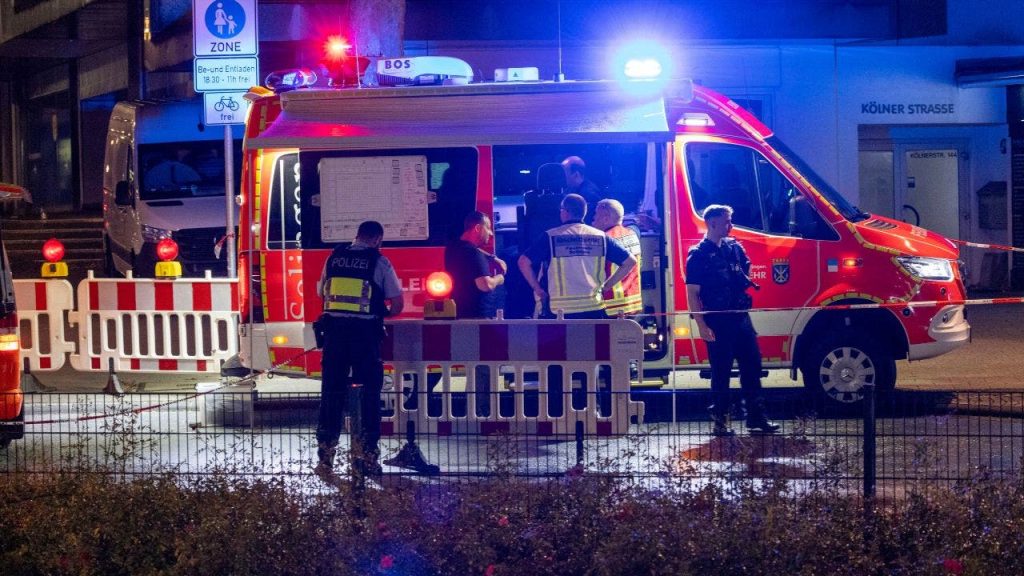Authorities in Germany have identified a 26-year-old Syrian man named Issa Al H. as the suspect responsible for a deadly stabbing spree at a festival in Solingen that left three people dead and eight others wounded. The Islamic State claimed responsibility for the attack, stating that it was carried out to avenge Muslims in Palestine and elsewhere. The group described the attacker as a “soldier of the Islamic State.” The suspect had been living in a refugee home in Solingen before the attack, having moved to Germany in late 2022 and seeking asylum.
Chancellor Olaf Scholz called for stricter immigration laws and increased deportations in the aftermath of the attack, labeling it as terrorism. The victims were enjoying a live music performance in front of a stage marking the town’s 650-year anniversary when they were attacked. Three people, including two men aged 67 and 56, and a 56-year-old woman, died in the attack. Police noted that the attacker appeared to deliberately aim for his victims’ throats, and the square where the attack occurred was cordoned off as a memorial site.
Fatal stabbings and shootings are relatively rare in Germany, prompting the government to consider toughening rules on the carrying of knives in public. There have been previous instances of violence involving migrants, such as an incident in Mannheim where an Afghan migrant attacked an anti-Islam activist and others, resulting in the death of a police officer. In the context of upcoming state elections in Thuringia, Saxony, and Brandenburg, members of the right-wing party Alternative for Germany (AfD) have been targeted in attacks. The AfD’s candidate, Bjoern Hoecke, highlighted the attack as an example of the consequences of multiculturalism.
The attack in Solingen prompted shock and sadness among residents, with the town’s mayor expressing grief over the loss of lives as people had gathered to celebrate the city’s anniversary. The violence has reignited discussions around immigration policies and security measures in Germany, with calls for stricter enforcement and deportations. The incident underscores the ongoing tensions and challenges related to immigration, terrorism, and political extremism in the country. The authorities continue to investigate the attack and the possible motives behind it.
The Islamic State’s involvement in the attack has raised concerns about potential links between individuals in Germany and extremist groups abroad. The suspect’s background and reasons for carrying out the attack are under scrutiny as authorities work to prevent future acts of violence. The incident has also reignited debates around integration, terrorism prevention, and public safety measures in the face of growing threats posed by radical ideologies. The government’s response to the attack will likely include a review of existing policies and measures to address security concerns and prevent similar incidents in the future.


